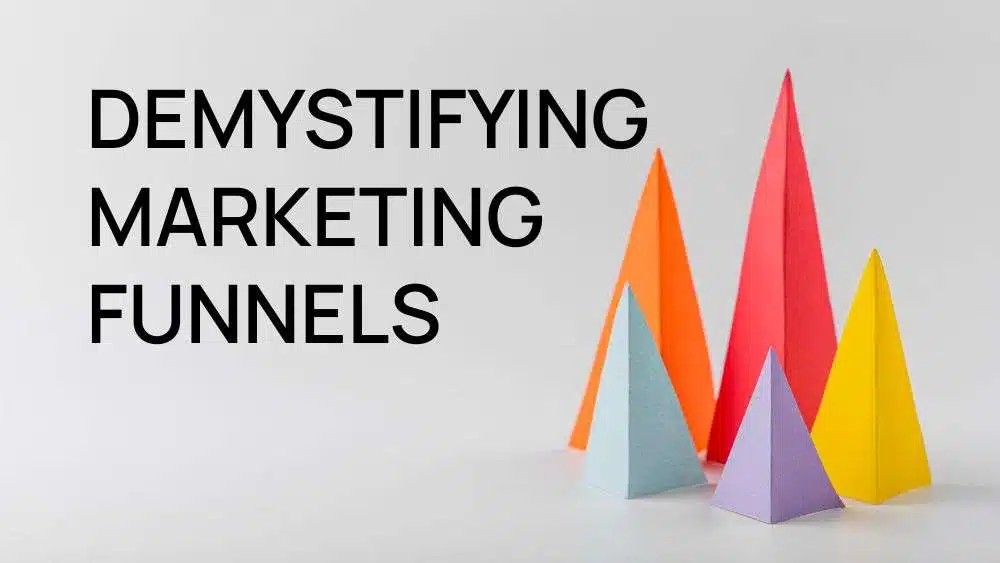In the world of marketing, understanding the concept of the marketing funnel is crucial for effectively reaching and engaging with your target audience. The marketing funnel is a framework that maps out the customer journey, from the initial awareness stage to the final purchase and beyond. In this comprehensive guide, we’ll unravel the intricacies of the marketing funnel, providing you with a step-by-step breakdown of each stage.
1. Awareness Stage:

The first stage of the marketing funnel is the awareness stage. This is where potential customers become aware of your brand, product, or service. During this stage, your goal is to attract the attention of your target audience and make them aware of what you have to offer. Strategies for the awareness stage include:
- Content Marketing: Create valuable, informative content that addresses the needs and pain points of your target audience. This could include blog posts, videos, infographics, and social media posts.
- Search Engine Optimization (SEO): Optimize your website and content for search engines to improve your visibility and attract organic traffic.
- Social Media Marketing: Use social media platforms to promote your content, engage with your audience, and increase brand awareness.
2. Interest Stage:

Once potential customers are aware of your brand, they move into the interest stage of the marketing funnel. During this stage, they are actively seeking more information about your products or services and are considering whether or not to make a purchase. Strategies for the interest stage include:
- Email Marketing: Build an email list and send targeted email campaigns to nurture leads and provide them with more information about your products or services.
- Remarketing: Use targeted ads to reach potential customers who have already shown an interest in your brand or visited your website.
- Content Upgrades: Offer additional valuable content, such as ebooks, whitepapers, or case studies, in exchange for contact information.
3. Consideration Stage:
In the consideration stage, potential customers are evaluating their options and comparing different products or services. Your goal during this stage is to provide them with the information they need to make an informed decision. Strategies for the consideration stage include:
- Product Demos and Trials: Offer product demos or free trials to allow potential customers to experience your product or service firsthand.
- Customer Reviews and Testimonials: Showcase positive reviews and testimonials from satisfied customers to build trust and credibility.
- Comparison Guides: Create comparison guides or blog posts that highlight the features and benefits of your product or service compared to competitors.
4. Decision Stage:

In the decision stage, potential customers are ready to make a purchase decision. Your goal during this stage is to make it as easy as possible for them to convert. Strategies for the decision stage include:
- Clear Calls-to-Action (CTAs): Use clear, compelling CTAs to encourage potential customers to take the next step, whether it’s making a purchase, scheduling a consultation, or signing up for a free trial.
- Limited-Time Offers: Create a sense of urgency by offering limited-time discounts or promotions to encourage potential customers to act quickly.
- Streamlined Checkout Process: Make the checkout process as simple and streamlined as possible to reduce friction and make it easy for customers to complete their purchase.
5. Retention Stage:
The marketing funnel doesn’t end once a customer makes a purchase. In fact, retaining existing customers is just as important as acquiring new ones. Strategies for the retention stage include:
- Email Newsletters: Stay in touch with your customers by sending regular email newsletters with updates, tips, and special offers.
- Customer Loyalty Programs: Reward loyal customers with exclusive discounts, special offers, or loyalty points that can be redeemed for future purchases.
- Customer Support and Engagement: Provide exceptional customer support and engage with your customers on social media to build relationships and foster loyalty.
Conclusion:
The marketing funnel is a powerful framework for understanding the customer journey and optimizing your marketing efforts at every stage. By implementing the strategies outlined in this guide, you can attract, engage, and retain customers more effectively, driving long-term success for your business.


Leave a Reply